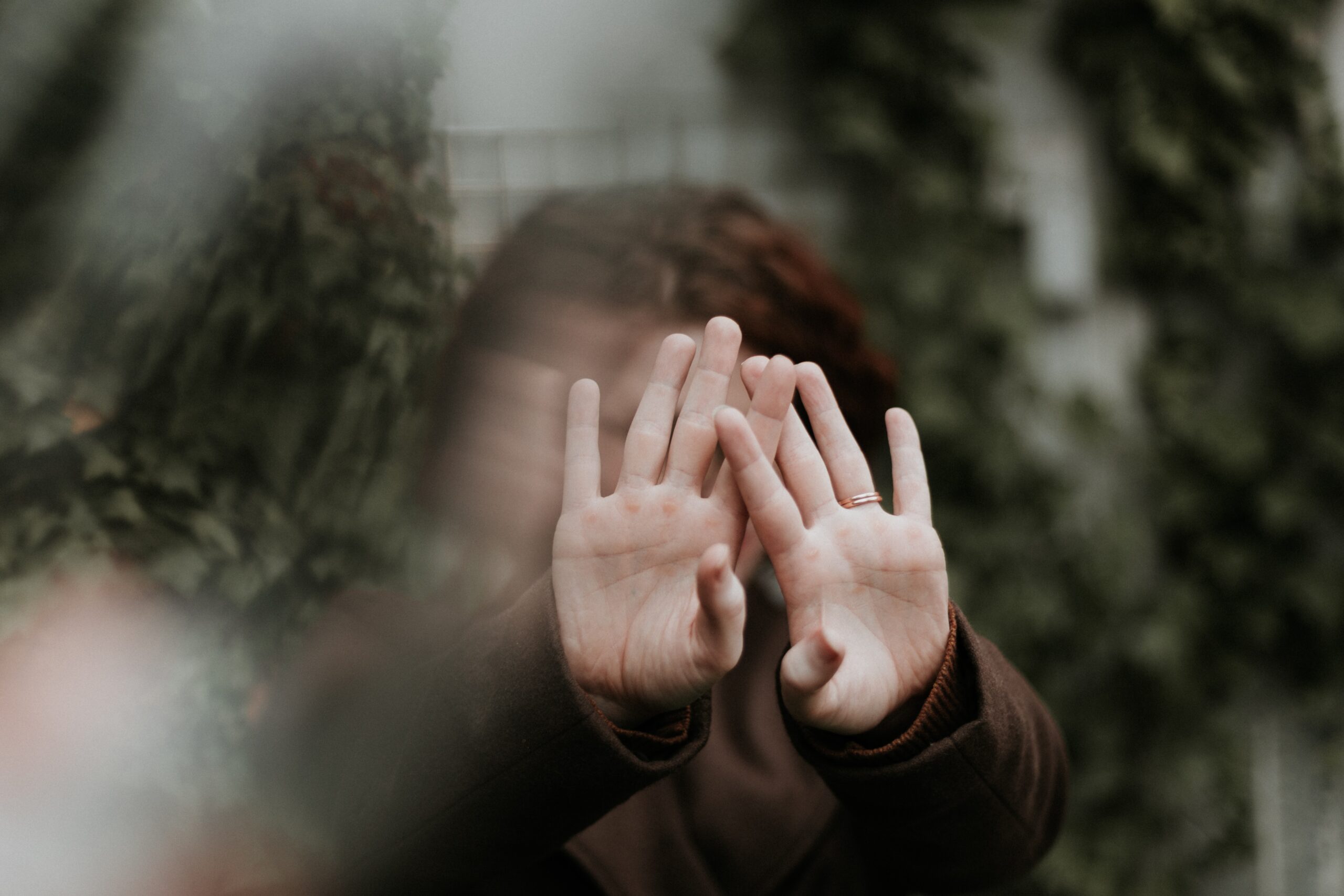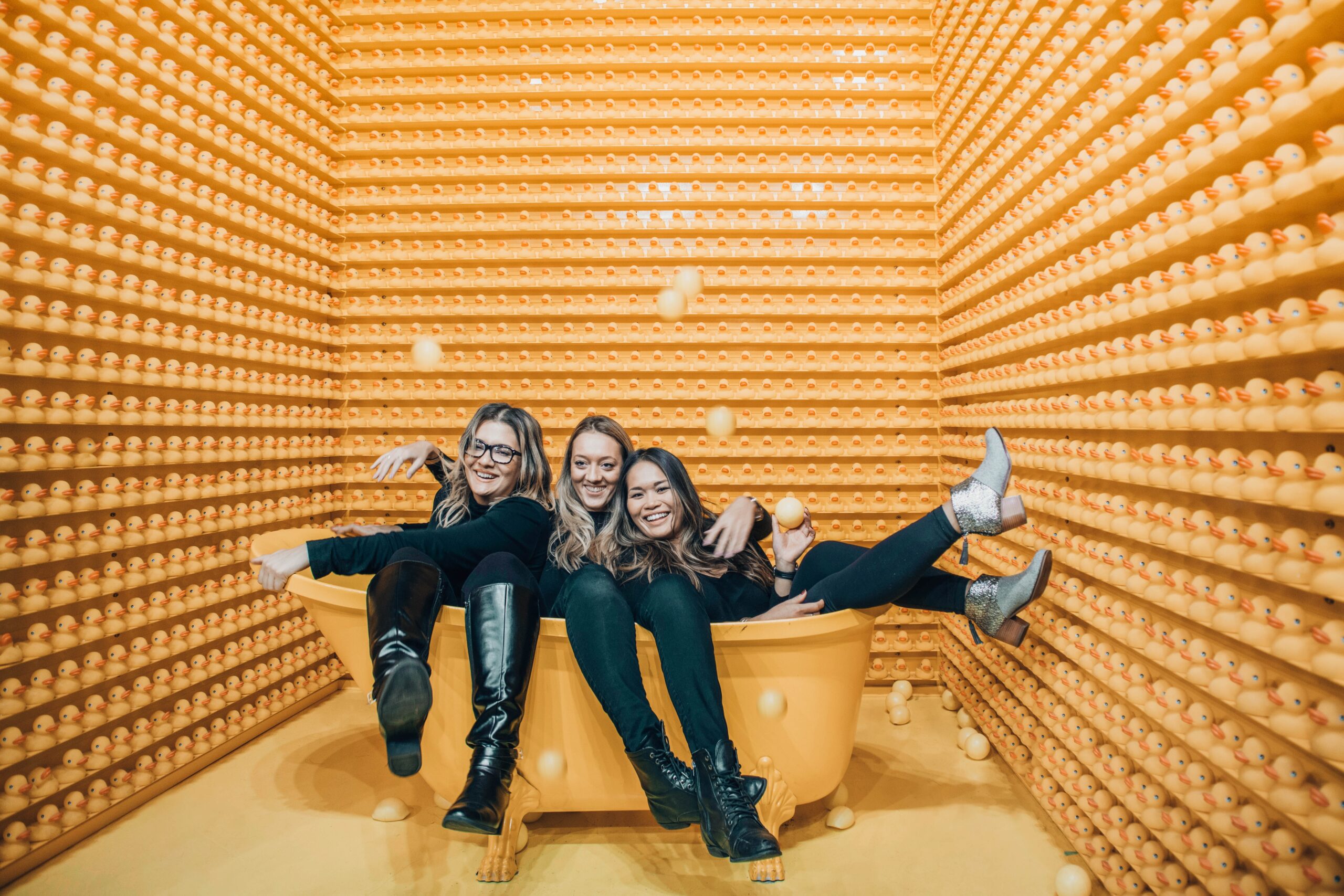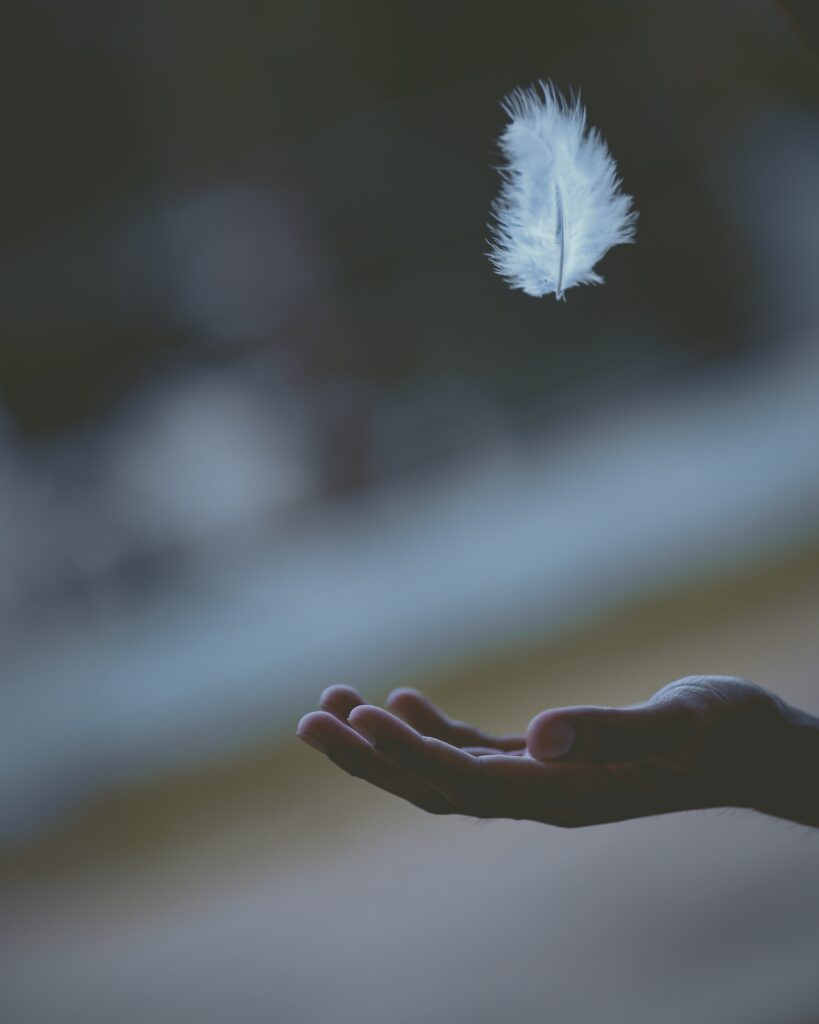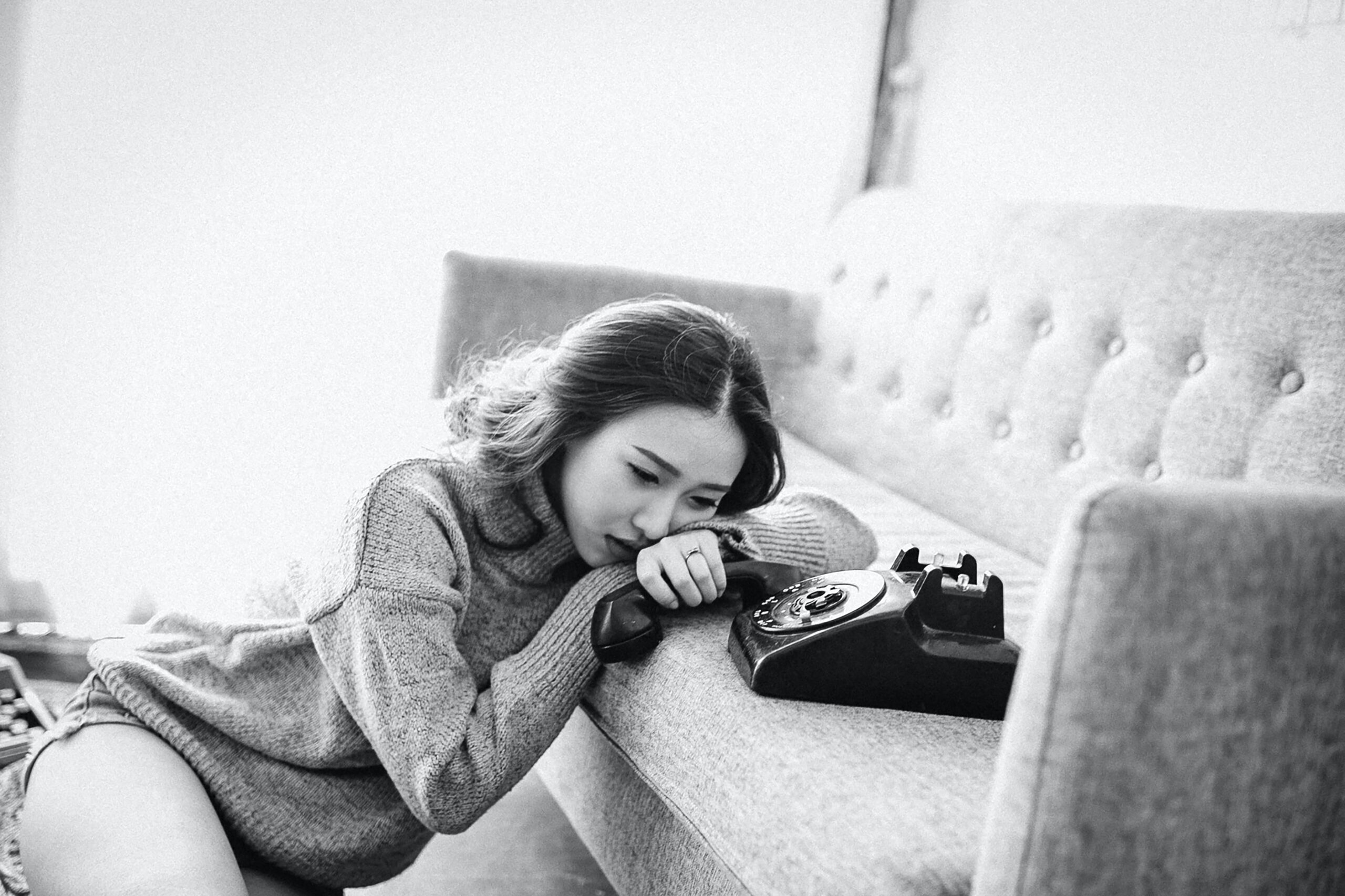Learning Authentic Love through The Art of Detachment
How to set boundaries, love purely, and conquer the pain of loss with loving detachment.
Letting go is the best way to hang on.
If you search the web for “the art of detachment,” you’re going to get a lot of explanations about what the art of detachment is, how it works, and where you can apply it in your life. Many of these focus on using the art of detachment to establish healthy boundaries in life. In therapy, the art of detachment usually has something to do with breaking codependent habits because, at its simplest, it truly is the art of letting go.
By “letting go,” please know this isn’t saying that we don’t care, aren’t invested, or are selfish. If anything, the art of detachment allows us to be more invested and caring, and when we release ourselves from our attachment to the outcomes in life, we find authentic happiness.
Once you understand the art of detachment in practice, using it to establish healthy boundaries is easy, so we’ll talk about that real quick. The bigger goal I hope to accomplish in the space of this article, however, could be a difficult task.
I want to show you how you can use the art of detachment both to overcome loss and to more purely love someone.
Detachment for Setting Boundaries
Many wonderful pieces explain the beauty of using detachment for boundary setting to protect your emotional and mental energy. When we find ourselves or our resources overextended because of our investment in someone else’s situation — for example, we want to help someone who continues to make poor life choices despite themselves — then it’s time to retract or detach from them and protect ourselves. (To explore more on why it’s important to detach in the first place, check out this piece from Medium’s Shreya Dalela.)
Wanting to save or fix people (or their situations) is unhealthy. Even the simple act of offering advice can lead to resentment when that advice isn’t taken. At the end of the day, the only person you’ve got control over is you. No amount of energy you invest in an addict, for example, will end their addiction. That’s their choice, no matter how you feel about it or how you try to influence their behavior.
Many experts talk about detaching to preserve your energy and resources and release responsibility back to whomever the situation truly belongs. This is setting a healthy boundary. When we invest too much into other people, we often do so to our own sacrifice.
All the time you spend on the phone listening to your friend’s drama, knowing damn well they’re not going to take a bit of the advice they’re begging you for, is time that you won’t get back to live your own life. So why are you still on the phone?
It sounds callous, but it’s not. Not your circus; not your monkeys. It’s a healthy boundary, and you can have as many of them with as many people as you’d like.
But here’s where the art of detachment transcends to the next level.
Detachment as the Purest Form of Love
Detachment as a means for setting boundaries exists in isolation typically. Like our friend above, we simply stop enabling their codependent drain on our energy and resources by not engaging in that conversation. But this next-level detachment is a perpetual state of being and can be more difficult to achieve and maintain.
What I don’t see a lot of, and what I’ve been working through with my therapist for a while now, is being able to love someone in a detached way. You’re not dismissive or unconcerned. In fact, it’s quite the opposite. Loving someone in a detached way is arguably the purest love you could offer them, as well as the best love you could experience yourself.
Here’s the thinking around it that I’ve been working through with my therapist and the experts we’re studying.
But first, to contextualize briefly, I come from a string of marriages and poor relationship choices. I was codependent without knowing it, and I was what is often called “love addicted,” a condition that arises from childhood abandonment issues. I didn’t know how to love anyone without being terrified that they would leave me one day. In short, I was completely attached.
Loving people this way leads to an anxiety disorder, as well as constantly living in fight or flight mode, worried that anything you say or do next could be the “reason” you were left behind. With or without abandonment issues, many of us love in such a way that we’re terrified to lose that person and don’t want to “mess it up.”
In the past four years of therapy, I’ve been relearning how to love, and I mean that universally: friends, partners, jobs, things, life. After identifying the trauma and the coping mechanisms that grew from it, I’ve been working to heal those wounds and establish healthy behaviors and relationships.
Enter my current partner. Had I not been working so hard on myself for so long, I’d have never been able to share a world with this man. He has healthy boundaries and understands relationships on a level I’m still working toward. Of all the men in my life I “should be” desperately clinging onto, fearful that they’d leave me, it’d be him.
But you see, I’m not. I don’t love him that way at all. I love him through the freedom of detachment, and that’s the best compliment I can offer him.
Practicing “Loving Detachment” in Relationships
Practicing the art of detachment in relationships is liberating for many reasons. This sounds sideways compared to much of what we hear about relationships growing up, so I’ll do my best to explain how detachment is the purer way to love.
On a rudimentary level, “loving detachment” allows me to give my partner all of his power by not taking on his choices as my own. Yes, we’re a team. Yes, we celebrate each other’s victories. Yes, we talk about problems when they come up and work through things together. I’ll listen and be his sounding board and offer advice if I’m asked, and he will do the same for me.
But where the detachment part starts is understanding that I am not his voice or his savior. First and foremost, he doesn’t need one. No healthy, boundary-having person should, and who am I to think I know what’s better for him than he does for himself anyway?
And secondly, I don’t want the responsibility to “save” him, because people can’t actually do that for each other anyway, so it’d be wasted energy.
And this inability to save people extends to all relationships. I wrote a whole piece on why I had to withdraw from someone I love dearly because she’s not ready to do the work for herself yet. It doesn’t mean I don’t love her — quite the contrary.
What it means is I love her enough to give her her own experiences and emotional responses to grow through and to which she’s entitled, even if they’re painful for her to experience and painful for me to watch her endure.
And it means that I love myself and my own situation enough to establish a boundary that protects me from becoming emotionally drained and unable to contribute to the people I’d like to or create the life I desire for myself.
In my relationship with my partner, I absolutely adore him. I pray that we’re always the life partners we want to be. But that brings us to the next leg of the art of detachment.
As much as I don’t want him to leave or have something happen to him, if that becomes the case, I can move forward in peace and without a sense of loss.
Some people misunderstand this peace of mind as dismissiveness, or they might say that I’d be in denial of the loss or claim I never loved him properly in the first place if I didn’t spend the rest of my days aching for him because that’s what we’re “supposed” to do when we lose people.
This is where it gets hard to explain, but it’s the place where I think that I’ve gone down a different, perhaps more successful, path than most who aim to practice detachment, and I believe this is where the big difference is.
Detachment Makes Sense because Love is a Choice
I have another unpopular opinion about love and how love isn’t brain fireworks or butterflies; it’s simply a choice. I choose to love my partner, and while I do enjoy the “rush” that sometimes comes with that, I recognize it for what it is when it happens — chemicals and hormones.
And after all the relationships I’ve been in, I know that I can recreate that chemical rush with anyone. For the first time, though, that rush is not the reason why I love my partner so much. I choose to love him so dearly because of who he is as a man, how he treats me, how much we respect each other, and how our lives align.
I don’t care to have the rush at all, actually, because without it, I know my choice to love my partner is authentic and uninfluenced by codependency, hormones, or chemicals, which makes it a purer love than my previous relationships. Add in the ability to detach, and it’s a love that transcends everything I’ve ever known.
Also, you don’t have to agree with me here for loving detachment to work for you. This is just where I think I’ve found it easier than some to learn to love with detachment.
In the same way that love is a choice, the art of detachment is a choice. Everything we do is in our control. When something happens in our lives, our response is 100% on us. No one else can control that unless we allow it. And if we allow it, it’s still our choice to have done so, and thereby still our fault/problem/situation/etc.
Therefore, when we recognize that loving someone is our choice and our reaction to losing them is our choice, all parties are liberated.
So, what does this look like in daily practice? Here’s a small example of how detachment is liberating.
For starters, I don’t tell my partner (or anyone for that matter) what he’s going to do. He’s a grown-ass man, and he can do what he wants. If we’re out together with friends, and he’s tired and wants to leave, I’m not going to beg him to stay just to appease my desire to be with him. He wants to leave. That’s his choice.
My choice now is whether I’m going to stay with our friends a little longer or join him. We’re lovingly detached, and we allow each other to make our own choices. There’s no manipulation, no passive-aggressive “well, you know I sleep better when you’re next to me” nonsense, which would be him trying to manipulate me to come home when I might not be ready to go.
Because of our ability to take responsibility for our own choices and the fact that we are detached from our egos and expected outcomes, we’re free to exist in this space together in a healthy way, where no one feels invalidated or unheard. And while that’s small scale, it transfers into all aspects of loving detachment.
To go grander, I would be devastated if something happened to him and I lost him tomorrow. However, in loving detachment, I would be able to release him, in love, and allow myself to let go of the “what ifs?” that we never got to experience. When we do that, we’re choosing to break our own hearts time and time again, because the only thing we can control is our response to life.
Why would I keep choosing to hurt myself?
Letting him go is part of being present, too. I’d be honoring his memory (in life or in death) by not clinging to painful hypotheticals and instead focusing on all the ways that we are/were beautiful.
Detachment for Processing Loss
An actual example of loss I can offer is losing my father to COVID in May of 2020 at the beginning of the pandemic in the US. I think about him, sure, but in loving detachment, I don’t miss him. I don’t grieve him daily. I don’t focus on the things we didn’t get to do because his life was cut short.
Many of the people I know who’ve lost parents talk about the constant ache they feel or the “hole” they have for the parent(s) they’ve lost. They talk about the pain of always wishing they were still around to experience these life things together.
I, on the other hand, have a detachment around death that offers me a whole new level of acceptance of the circumstances. For starters, I believe science is right, that both matter and energy are neither created nor destroyed. Therefore, things don’t end, they just change, and I get to choose my reaction to that change.
To be direct, he’s dead. We had a strained relationship, and some might argue that’s why I don’t feel the attachment I “should” toward losing him, but that’s not the case. No matter what our relationship was, he’s simply not alive anymore. Things changed. Why spend my life wishing for things that are impossible for me to have and impossible for him to do anything about? It’s a waste of energy.
I don’t love my dad any less than anyone else who’s lost a parent, but I release him. I choose to be present in my own life and not dwell on what could have happened were he still here. I appreciate what we did have, and I move forward in loving detachment.
And yes, I know how bizarre that sounds to most people. That just means they love with attachment, and there’s nothing wrong with that other than it’s a painful way to go through losing someone.
On the flip side, if you experience loss like I do and you’re carrying shame or guilt around because you don’t grieve like other people, please release that. There’s nothing wrong with you. Assuming you’re not living in some kind of denial, please don’t let people make you feel like your emotional response is inappropriate or unhealthy.
How To Love and Accept Loss through Loving Detachment
While it’s definitely an outlier concept, loving detachment is monumental in processing grief and loss, as well as establishing healthy boundaries and creating truly loving and free relationships with others.
And yes, I realize that I make it sound like you can just flip a switch, but that’s not how it works, and I don’t want to mislead anyone. It’s something you have to practice. That’s why it’s called a practice in the first place. You can do it, though. We all can. It’s a choice, remember? We can all make choices.
If I was to give someone a “how-to” on loving with detachment, it would look something like this:
- Be present. Appreciate the moment you’re in when you’re in it. Fight against the noise in your head that might be stuck in the past or worried about the future. You can’t do anything about either of those spaces in the present. Make plans and set goals, but allow yourself to detach from the outcome and be fluid. Don’t give the past and the future your energy.
- Make peace with the fact that people play temporary roles in your life. All the memes aside, people really do have an expiration date, and they’re not necessarily meant to cross the finish line with you. And hey, that’s okay. We’ve all got a journey. When someone exits your life, no matter the reason but especially if alive and by choice, let them go. Those who want to stay will choose to. Those who don’t will leave. Learn from them whatever you were supposed to, but don’t give their ghosts your energy.
- Recognize you are no one’s savior or fixer. Share your thoughts, fears, concerns, and so on, but in no way are you responsible for others’ choices. You don’t have the power to control others’ choices anyway. When you accept that and you allow people to make their own way in the world, you liberate yourself. Don’t give unhealthy boundaries your energy.
- Connect with your version of a higher power to accept the things you can’t control. I mentioned my connection to the laws of conservation of mass and energy above. It brings me comfort to know that things don’t end; they just change. I’m empowered by the fact that my reaction to that change is completely my choice. As I am not religious, this is my version of a higher power. Please interpret this however it best suits your beliefs. Let go, and let God, some say. Don’t let your drive to control things you can’t have your energy.
- Figure out why you feel attached in the first place. In order to conquer attachment and the suffering it causes, we’ve got to figure out why we’re attached (addicted, even) to whatever thing, person, job, issue, etc. Once we face the sometimes difficult answers to these questions, we can start to move through to loving detachment. When we analyze why we “need” someone or something in our life, it often comes back to a void in ourselves that we’re trying to fill from the outside. It doesn’t work that way. We’ve got to fill ourselves up without needing anyone else for anything. The best part is coming to the place of knowing that you don’t actually need anyone; you just want them. It’s liberating for everyone involved. Don’t give neediness your energy.
And offer yourself some grace around this practice, too. At first, it’s going to feel foreign and perhaps like you don’t care about others. Someone might even look at your loving detachment, especially if you’re setting up a new boundary with them, and accuse you of not caring or being selfish. It’s natural for them to feel this way as you take back all the energy you’ve been lending them. Give them their control back. You can’t fix it anyway.
Please know that you’re not selfish or uncaring for doing this for yourself. The healthy people who are stable, secure, and invested in you will understand it. They’ll appreciate the freedom you offer them to live their authentic lives and make their own choices without your interference. You’ll appreciate the peace you get from not trying to control their situations. Remember: Not my circus; not my monkeys.
When it comes to loving others, do so with an understanding that we don’t get to keep people forever. I know, I know. You’re thinking, “Duh, Jennifer. I get that already.” But really know it. Be at peace with it. Love people without taking over their lives. Love people without needing them to be there.
And when it comes to grief and loss, loving detachment will soothe your soul every time. Things don’t end; they just change.
Thanks for taking the time to read this. I’d love to hear about your experiences with love, loss, boundaries, or even with your own practicing of the art of detachment. Let’s grow together!
Love and light, ❤ Jennifer





